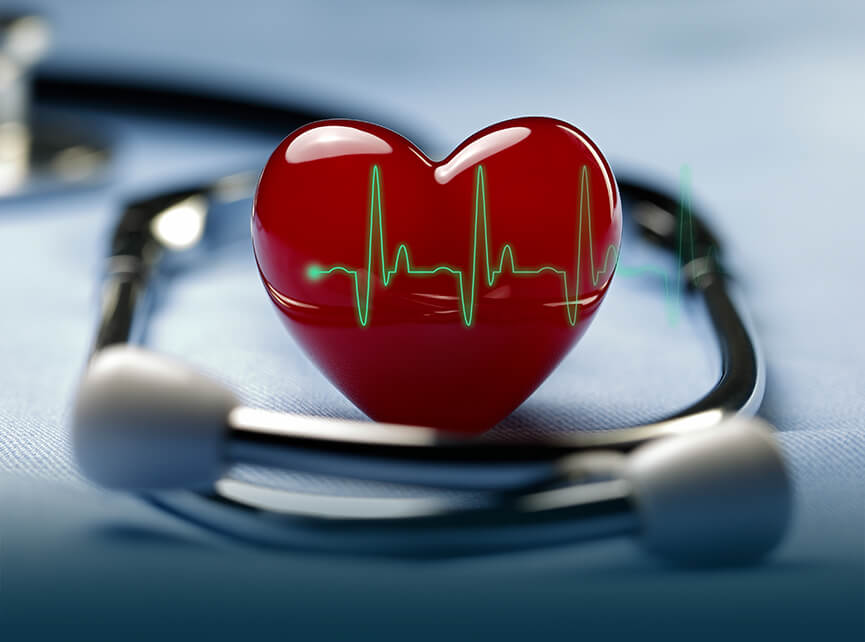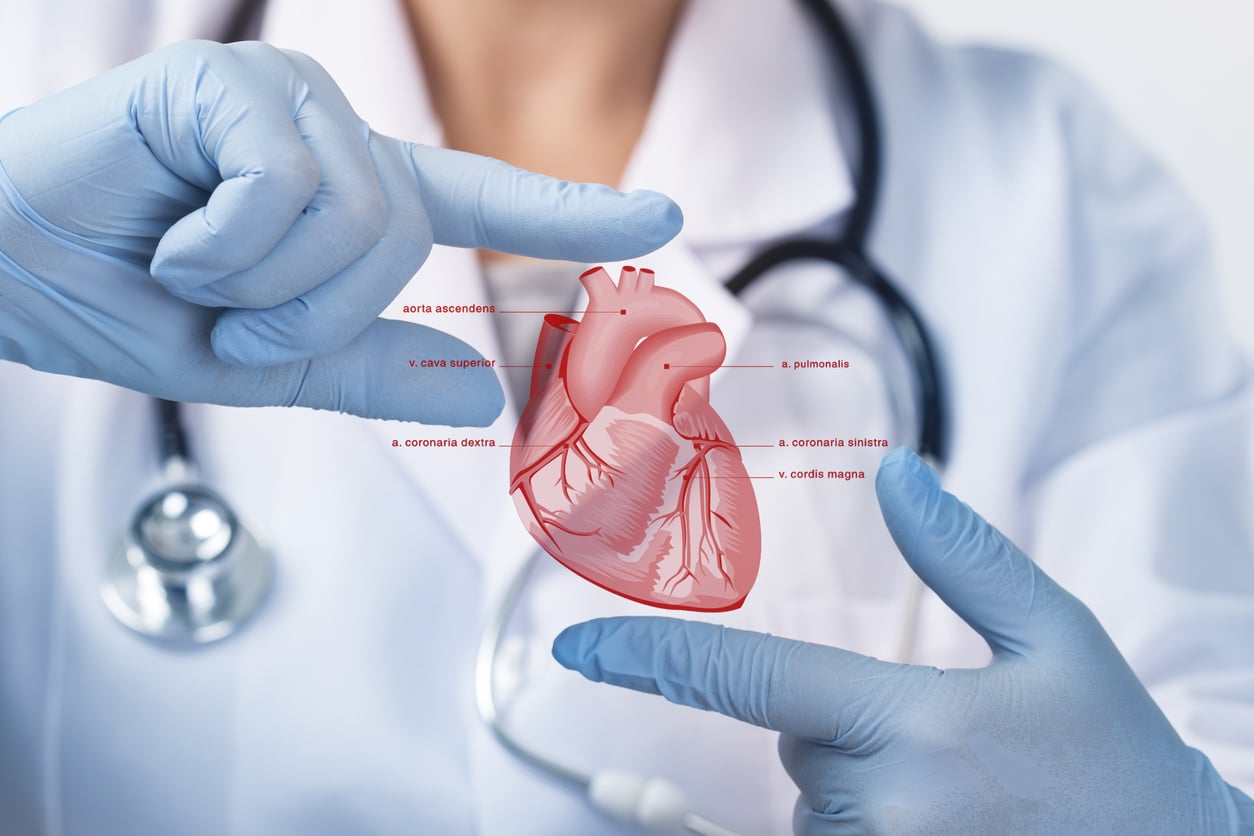Understanding the Relevance of Cardiology in Modern Healthcare Solutions
Cardiology plays a crucial function in contemporary medical care, particularly as heart condition remains to be the leading cause of death worldwide. Advancements in diagnostics and treatment have transformed person care, allowing earlier interventions and enhanced outcomes. The shift in the direction of precautionary cardiology equips people to manage their health proactively. As modern technology remains to develop, the assimilation of ingenious options may further redefine cardiology's effect on public wellness, prompting a more detailed evaluation of emerging patterns and their ramifications.
The Prevalence of Heart Problem and Its Effect On Public Health And Wellness
Heart condition continues to be the leading reason of fatality globally, its effect expands far past private patients to affect public wellness systems and economies. The high frequency of heart disease places a considerable pressure on medical care resources, necessitating boosted funding for therapy, prevention, and rehab programs. Public health efforts have to attend to threat variables such as obesity, smoking cigarettes, and less active way of livings, which contribute greatly to the rising occurrence of heart conditions.Moreover, the financial burden related to heart illness is tremendous, including not just straight medical expenses however additionally indirect costs associated with shed productivity and early death. Communities face challenges in taking care of these prices, typically bring about variations in health care gain access to and outcomes. As the population ages and lifestyle-related threats remain to intensify, the necessity for effective cardiology treatments becomes critical. Consequently, resolving heart problem is not just a matter of individual health and wellness yet additionally a vital public health top priority.
Advancements in Cardiac Diagnostics and Imaging Techniques
Current developments in heart diagnostics and imaging techniques have transformed the area of cardiology, improving the capacity to discover and keep an eye on cardiovascular disease. Methods such as heart MRI, CT angiography, and echocardiography have actually become significantly innovative, providing detailed photos of cardiac frameworks and features. These techniques permit the early recognition of conditions like coronary artery condition, heart failing, and valvular disorders.Moreover, innovations in non-invasive diagnostics, such as wearable technology and remote surveillance tools, have actually empowered patients and doctor. These devices help with real-time monitoring of heart rhythms and other necessary indications, causing prompt interventions. In addition, expert system is being integrated into imaging evaluation, enhancing precision and performance in medical diagnosis.
Innovations in Therapy Choices for Heart Issues
Current developments in cardiology have resulted in significant developments in therapy alternatives for heart disease. These consist of innovative surgical methods that improve procedural end results and emerging medications that provide new opportunities for treatment. As the area progresses, these innovations play an essential role in boosting individual care and outcomes.
Advanced Surgical Techniques
Innovations in medical techniques have actually changed the landscape of cardiology, providing brand-new hope for patients with heart disease. Minimally intrusive treatments, such as catheter-based treatments, have actually considerably lowered recuperation times and health center keeps. Strategies like robotic-assisted surgical procedure enhance precision, enabling cosmetic surgeons to browse complicated anatomical structures with higher precision. Additionally, advancements in imaging innovation assist in real-time visualization during procedures, improving outcomes. Transcatheter aortic valve replacement (TAVR) exhibits an innovation in dealing with aortic constriction, allowing valve replacement without open-heart surgical treatment. Furthermore, hybrid methods that combine surgical and catheter-based approaches supply customized services for various cardiac concerns. These innovative surgical techniques not only boost patient safety but likewise expand therapy choices, highlighting the crucial role of advancement in contemporary cardiology practices.
Emerging Medications and Treatments
As the landscape of cardiology proceeds to advance, arising medicines and therapies play a critical duty in improving treatment alternatives for heart disease. Developments such as unique anticoagulants and advanced lipid-lowering representatives have changed the administration of heart diseases, significantly minimizing patient morbidity and death. Additionally, the growth of gene treatments and regenerative medication offers promising methods for dealing with problems previously regarded permanent. Medical trials are continuously revealing the effectiveness of these treatments, pushing the borders of traditional therapies. The integration of digital health and wellness modern technologies promotes customized medicine, permitting for customized therapy plans based on hereditary and way of living elements. Jointly, these advancements highlight the dynamic nature of cardiology, enhancing person end results and redefining requirements of treatment in modern-day medical care.
The Role of Preventive Cardiology in Patient Care
Precautionary cardiology plays a crucial role in individual treatment by concentrating on the recognition of danger aspects that add to heart condition. Through way of life adjustment methods and early detection techniques, doctor can efficiently lower the occurrence of cardiovascular events - Cardiology care. This positive method not only improves person outcomes yet also promotes long-term wellness
Threat Aspect Recognition
While cardiovascular diseases remain a leading reason of morbidity and death worldwide, effective risk variable recognition serves as a cornerstone of preventive cardiology. Recognizing danger elements such as high blood pressure, hyperlipidemia, diabetes mellitus, and household background is important for early intervention. Medical care experts use numerous evaluating methods to examine these elements, permitting customized precautionary procedures. Furthermore, recognizing a client's way of living options, such as smoking cigarettes and physical inactivity, better notifies risk evaluations. This comprehensive analysis enables medical professionals to create individualized treatment plans aimed at mitigating dangers. By focusing on risk aspect recognition, medical care systems can enhance client results and lower the overall problem of heart diseases, inevitably contributing to enhanced public wellness approaches and source allocation.
Way Of Life Adjustment Approaches
A multitude of research studies highlights the essential role of way of life alteration approaches in reducing heart disease danger. These methods include dietary modifications, boosted physical activity, cigarette smoking cessation, and weight administration. By taking on a heart-healthy diet regimen abundant in fruits, veggies, whole grains, and lean proteins, people can decrease cholesterol degrees and blood stress. Routine exercise enhances the heart and improves general cardiovascular health. Additionally, quitting smoking considerably lowers the threat of heart illness and enhances recovery rates for those with status quo. Weight monitoring even more contributes to cardio wellness by alleviating other risk aspects such as diabetes mellitus and high blood pressure. Implementing these lifestyle transforms not just promotes private health however additionally acts as a foundation of preventive cardiology in patient treatment.
Early Discovery Strategies
Way of life modifications significantly contribute to lowering heart disease dangers, but they are most reliable when paired with very early detection strategies. Precautionary cardiology emphasizes the relevance of recognizing possible heart issues before they rise into significant conditions. Techniques such as high blood pressure tracking, cholesterol screening, and advanced imaging innovations like echocardiograms play important duties in evaluating cardio health. Biomarkers and genetic screening likewise boost the precision of very early detection, enabling customized preventive approaches. Routine heart danger evaluations empower doctor to intervene proactively, potentially avoiding cardiac arrest and strokes (Cardiology care). By incorporating these very early discovery methods right into regular care, clients can gain from prompt lifestyle treatments and targeted treatments, ultimately enhancing end results and enhancing top quality of life
Integrating Innovation Into Cardiology Practices
As developments in modern technology remain to reshape various fields, the combination of cutting-edge devices and systems right into cardiology practices has become vital for boosting patient care and outcomes. Telemedicine platforms permit cardiologists to keep track of individuals from another location, boosting access to care while minimizing the concern on health care facilities. Wearable gadgets, such as smartwatches, allow continuous heart rate monitoring, informing both doctors and clients to prospective issues in real-time. Furthermore, expert system (AI) is being made use of to evaluate vast amounts of cardiac information, helping in early medical diagnosis and individualized therapy plans. Advanced imaging strategies, consisting of 3D echocardiography, boost visualization of heart structures, resulting in a lot more exact interventions. Digital wellness records (EHRs) improve person details management, making sure that cardiologists have instant accessibility to vital information. With each other, these technical improvements are changing cardiology, advertising positive monitoring and improved wellness end results for patients with cardio conditions.
The Importance of Person Education and Engagement
Client education and Going Here engagement play a crucial role in the monitoring of cardiovascular health and wellness. By furnishing patients with understanding concerning their conditions, therapy options, and way of life changes, doctor encourage individuals to take an active function in their treatment. This proactive method can bring about improved adherence to prescribed medicines, dietary modifications, and workout routines, inevitably decreasing the danger of complications.Engagement additionally cultivates a strong patient-provider relationship, motivating open communication and depend on. When people really feel educated and involved, they are most likely to voice worries and ask questions, which can lead to better clinical outcomes. Additionally, academic resources, such as workshops or digital platforms, can improve understanding and promote self-management techniques. Generally, prioritizing individual education and learning and involvement is essential for enhancing cardiovascular health, enhancing high quality of life, and decreasing health care costs related to cardiovascular illness.
Future Trends in Cardiology and Their Potential Impact

Regularly Asked Concerns
What Lifestyle Changes Can Minimize Heart Problem Danger?
The existing question addresses lifestyle modifications that can significantly decrease heart problem threat. Cardiologist near me. Taking on a balanced diet plan, taking part in regular exercise, keeping a healthy and balanced weight, handling stress, and staying clear of tobacco can notably enhance cardio health and wellness
Exactly How Can I Identify Early Indicators of Heart Issues?
Identifying early indicators of heart issues entails tracking symptoms such as upper body pain, lack of breath, tiredness, and irregular heart beat. Prompt recognition of these indicators can motivate needed medical analysis and intervention for better results.
What Are the Differences Between Cardiologists and Cardiac Surgeons?
The distinctions between cardiologists and heart cosmetic surgeons hinge on their roles; cardiologists mostly take care of and diagnose heart disease via non-invasive methods, while cardiac doctors perform operations to correct structural heart problems. Each plays a vital, distinct function.

Just how Usually Should I Obtain My Heart Health And Wellness Checked?
What Role Does Genes Play in Heart Illness Danger?
Genes significantly influences heart illness risk, with domestic patterns indicating acquired conditions. Certain genetics can predispose people to hypertension, cholesterol issues, and various other cardio issues, highlighting the significance of genetic testing in assessing heart wellness. Heart disease continues to be the leading cause of death internationally, its impact prolongs much past individual people to impact public wellness systems and economies. Public wellness initiatives should resolve risk elements such as excessive weight, smoking, and sedentary way of livings, which contribute substantially to the More Bonuses climbing occurrence of heart conditions.Moreover, the economic concern linked with heart condition is immense, incorporating not just direct medical expenses yet additionally indirect expenses related to lost efficiency and early death. Preventive cardiology plays a vital role in person care by focusing on the identification of risk aspects that add to heart condition. Fabricated intelligence (AI) and machine knowing are improving diagnostics and individual monitoring, making it possible for very early detection of heart conditions. The distinctions in between cardiologists and heart doctors exist in their duties; cardiologists largely diagnose and manage heart problems via non-invasive approaches, while heart cosmetic surgeons execute medical treatments to remedy structural heart problems.
Comments on “Dr Garcia shares habits that keep your heart strong for life”